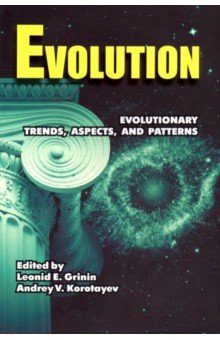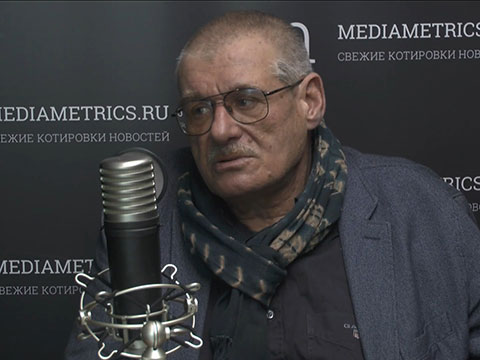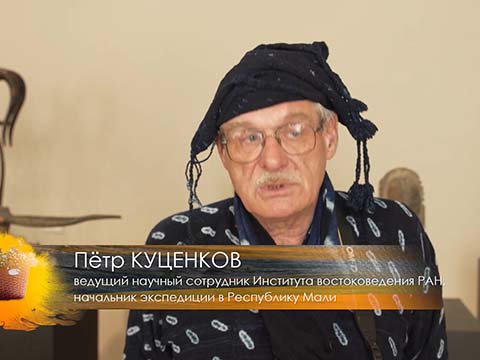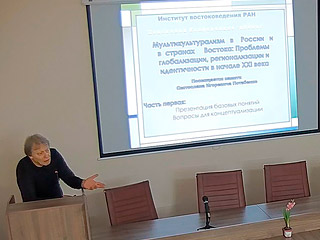Department of Comparative Cultural Studies
One of the" young " units of the Institute. It was organized in 1988 with the active participation of the former Director Mikhail Stepanovich Kapitsa and his Deputy Rostislav Borisovich Rybakov. Although the story goes into a slightly more distant past and is associated with the name of the famous scientist Boris Sergeyevich Erasov, who led a group of employees of the Department of Literature dealing with culture. But to start with the expansion of this group was not quite sufficient and it was decided to form a special Department for this purpose. M. S. Kapitsa suggested gathering a staff from all over the Institute scholars, whose work is largely concerned with the problems associated with culture. These were philologists, historians, linguists.
The initiative group "caught" the relevant scientists, captivating them with dreams of the future blossoming of the new direction in Oriental studies. The contributed to perestroika sense, that aimed at finding a new approach. More than thirty scholars composed the first organized structure and started to work.
It is necessary to mention that the subject of culture is too extensive. And that is why the Department pays attention both to fundamentals of culture and comparative studies.
The first stage is clearly marked by the name of B. S. Erasov. He began to publish a scientific almanac "Civilizations and cultures", where scientists from all over the country sought to "clarify" what can and should be done by specialists in cultural studies. There were three issues of the almanac, but the fourth, already prepared for publication, because of the death of the editor-in-chief (2000) remained unpublished. Only by the anniversary of Boris Sergeyevich (2017) managed to publish some articles of the Almanac, which were quite relevant for our time.
The second phase focused on the study of key concepts of culture. Sh. M. Shukurov began to publish impressive volumes with the participation of not only the Department staff, but also scientists from other institutions of science in Moscow and even from abroad. A series of "Oko" (published 11 books, including «Perfect Man», «Image of Temple», «Alien: experiences of overcoming»), a series of «Theory of art history» and a series of books on byzantinistics are within this project.
The third stage was marked by the beginning of the publication in 2008 of the periodical edition of IV RAN (IOS RAS) «Historical psychology and sociology of history» (editors-in-chief A. P. Nazarethyan and Yu. V. Lyubimov) The magazine is registered in Rospechat. It publishes articles of the Institute staff and the works of researchers from the Russian Federation and other countries.
In the Department there worked great scientists who made a valuable contribution to Oriental studies. Such scholars are the outstanding sinologists Igor S. Lisevich and Grigory A. Tkachenko, the japonist Tatiana P. Grigorieva, the indologist Vladimir N. Romanov, the culturologist Boris S. Erasov, the vietnamist Pavel V. Pozner, the koreanist Svetlana G. Nam, the buddhologist Vladimir I. Kornev and many others.
Now the Department may be proud of brilliant scientists such as Svetlana V. Prozhogina, Sharif M. Shukurov, Hakob P. Nazaretyan, Peter A. Kutsenkov and others.
The Department of culture (comparative cultural studies) works in the direction of «Cultural heritage and literature of the peoples of the East», but the main focus is not so much on the «internal» arrangement of localized areas of culture, but on the cultural, historical and socio-political relations of the peoples of the East, the East and the West, including Russia. That is where it takes place a contact of cultural spaces - both ethnic and national - that is a characteristic feature of human history, especially in the era of globalization. The comparative-historical methodology allows to study the processes of development, to identify patterns of cultural changes, to research intergenerational, intercultural and intercivilizational relations (including the integration of mobile groups of populations (migrants)), to give the greatest opportunities for comparative cultural studies in retrospective and perspective aspects.
The Department continues to study the history and theory of culture in temporal and spatial, traditional and individual, local and global aspects. At the same time provides expert support of various national projects in both conceptual and practical aspects, including the orders of the state bodies of Russia and abroad.












